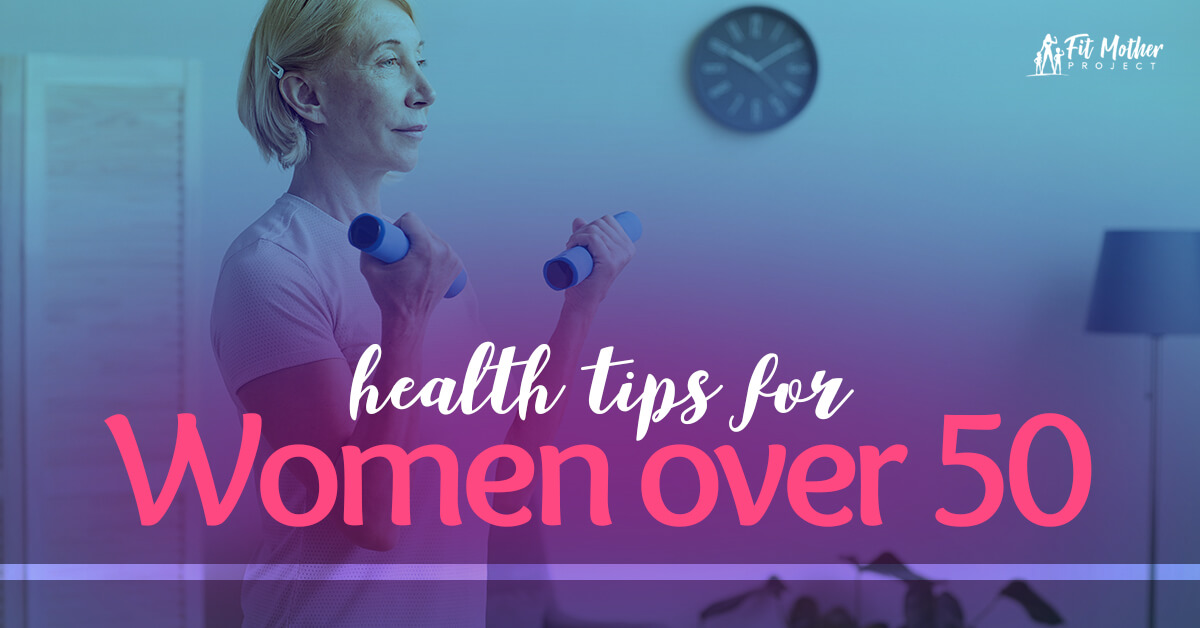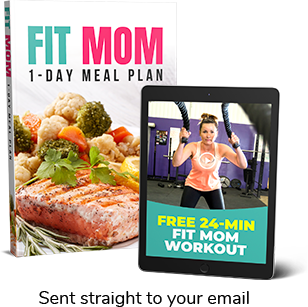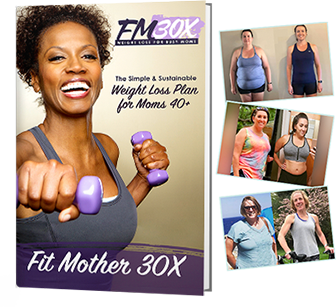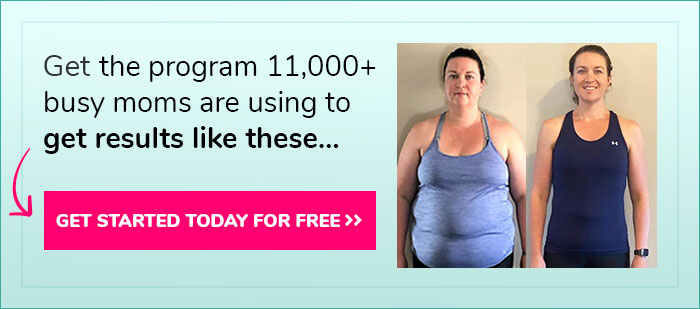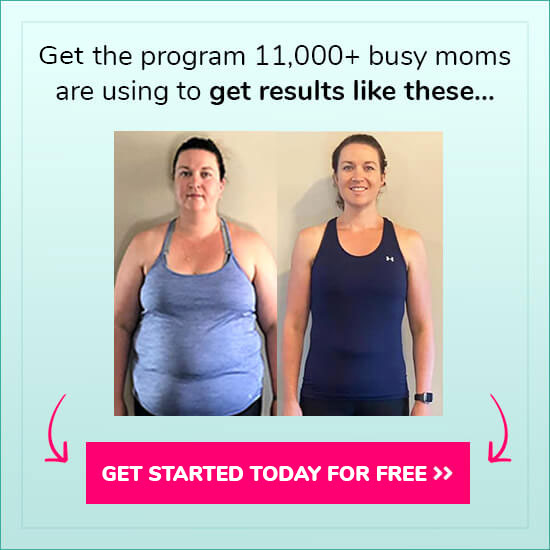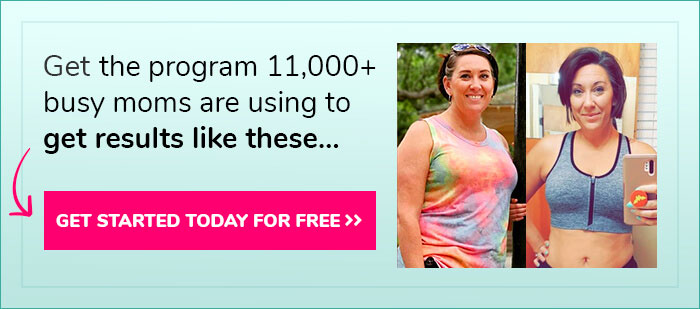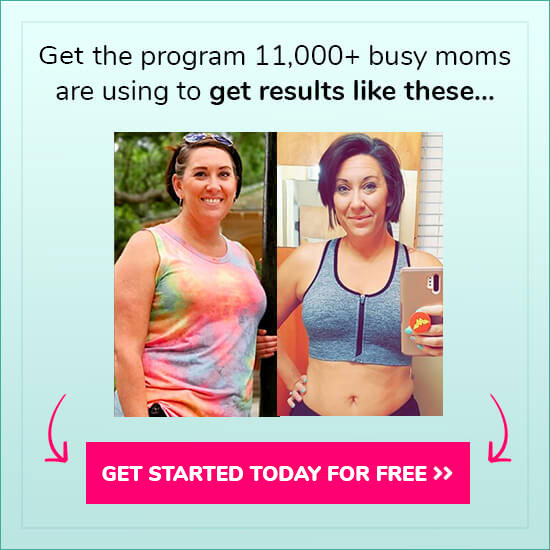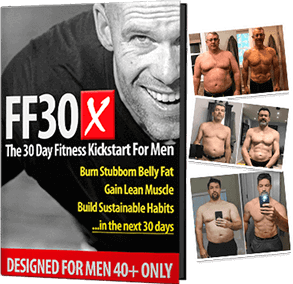Looking for some health tips for women over 50? It’s never too late to take control of your health and reach your fitness goals!
Your body undergoes a lot of changes after age 50, which makes following a healthy lifestyle even more important.
A lot of women use age as an excuse for gaining weight or losing muscle mass and endurance.
Scheduling necessary medical screenings allows you to take action to avoid chronic health issues and stay in peak physical shape even as you age.
Keep reading for our top health tips for women over 50 and live life to the fullest!
Need to drop a few pounds? Check out these tips and tricks on weight loss for women over 50!
Let us show you how you can start losing weight this week! We'll email you our free meal plan & workout + email coaching.GET YOUR FREE
“FIT MOM” JUMPSTART
(MEAL PLAN + WORKOUT)
The Most Important Health Screenings For Women Over 50
Blood Pressure
Even prior to turning 50, you should already be taking steps to maintain healthy blood pressure.
The American Heart Association categorizes blood pressure into five categories.
- Normal: Blood pressure less than 120/80
- Elevated: Blood pressure between 120-129/80
- Stage 1 Hypertension: Blood pressure 120-139/80-89
- Stage 2 Hypertension: Blood pressure greater than 140/greater than 90
- Hypertensive Crisis: Blood pressure greater than 180/greater than 120
High blood pressure, or hypertension, is often referred to as “the silent killer” because you can walk around with high blood pressure and not have any symptoms.
But if this continues to go untreated it can wreak havoc on your body. Older age causes the blood pressure to rise as arteries stiffen, which is one cause of high blood pressure.
High blood pressure can lead to serious complications. Stroke, heart attack, kidney disease, eye complications, peripheral artery disease, and vascular dementia are all related to high blood pressure.
And hypertension can worsen any underlying cardiovascular disease. Obviously, this is not a disease to take lightly.
Monitoring your blood pressure is one of the best, and easiest, things you can do for your overall health.
Your doctor will take your blood pressure at regular checkups. If you have hypertension you can also monitor this regularly with a home blood pressure cuff.
Learn how to reduce diastolic blood pressure with these 7 EASY tips.
Cholesterol
The risk of high cholesterol increases as women age, which means this is a key health issue to be addressed in women over 50.
Other risk factors for high cholesterol include a history of heart disease, high blood pressure, diabetes, being overweight, and a family history of coronary artery disease.
In addition, after menopause (around age 55), LDL cholesterol levels in women increase.
The USPSTF recommends cholesterol screening in both men and women over 20 who are at increased risk for coronary heart disease, healthy men aged 35 years and older, or healthy women aged 45 years and older.
Diabetes/High Blood Sugar
Diabetes mellitus is a disease characterized by high blood sugar due to decreased insulin secretion, insulin action, or both.
Type 2 diabetes is the most prevalent form of the disease.
It's often asymptomatic in its early stages and can remain undiagnosed for many years, which makes screening crucial in women over 50.
Diabetes, especially when inadequately treated, leads to damage in the eyes, kidneys, nerves, heart, and blood vessels.
Individuals with type 2 diabetes are also at significantly higher risk for stroke, coronary heart disease, and peripheral vascular disease.
They also have a greater likelihood of having high cholesterol, hypertension, and obesity.
Because early detection and prompt treatment can decrease diabetes complications, screening for diabetes is crucial.
The American Diabetes Association recommends evaluation for type 2 diabetes to be done at least every three years beginning at age 45.
This testing should be done earlier and more frequently if you have diabetes risk factors.
This includes being overweight, having a sedentary lifestyle, belonging to a high-risk ethnic or racial group, having a history of gestational diabetes or polycystic ovary syndrome, or having high blood pressure or high cholesterol.
Fit Mother Project is the first sustainable weight loss program designed exclusively for busy mothers just like you... FM30X is the first sustainable weight loss program designed exclusively for *busy* mothers like you... JOIN OUR fit
mother
PROGRAMJOIN OUR FIT MOTHER 30X PROGRAM
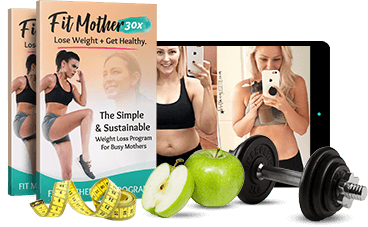
Breast Cancer
The guidelines for breast cancer screening have changed over the years and differs between organizations.
In the past, screening mammograms were typically started at age 40 and then repeated every one to two years.
The USPSTF guidelines now state that the decision to start screening with mammography in women prior to age 50 years should be an individual one.
Women who place a higher value on the potential benefit than the potential harms may choose to begin screening once every two years between the ages of 40 and 49 years.
The American Cancer Society has similar recommendations starting at age 40, however then recommends screening to begin every year starting at age 45.
You should discuss your options with your doctor as your individual preferences will depend on your values and family history.
Colon Cancer
Colon cancer can develop from abnormal growths, or polyps, in the colon.
Fortunately, if these polyps are detected early, colon cancer is very treatable.
All women over 50 should be screened for colon cancer, with some guidelines suggesting African American females begin screening at age 45.
If you have underlying medical conditions or a family history of colon cancer, you may need screening at an earlier age.
The most common screening modality is a colonoscopy. In some cases, stool testing for DNA may be performed.
You should discuss all of your options for colon cancer screening with your physician. The results of your screening will determine how often you need to have repeat tests.
Osteoporosis
Osteoporosis is characterized by loss of bone mass and decline in bone quality leading to an increased risk of fractures.
This disease is usually asymptomatic until a fracture occurs. this makes screening important to detect bone weakness before this happens.
By 2020, approximately 12.3 million individuals in the United States older than 50 years are expected to have osteoporosis.
Osteoporotic fractures, particularly hip fractures, are associated with decreased mobility, chronic pain, loss of independence, and decreased quality of life.
Screening for osteoporosis is even more important for women after menopause. Seventy-one percent of osteoporotic fractures occur among women and women have higher rates of osteoporosis than men at any given age.
Multiple studies show that drug therapies reduce fractures in postmenopausal women with osteoporosis.
Therefore, healthy women should begin screening at age 65.
However, there are certain conditions or medications that can increase your risk for osteoporosis, so you should discuss screening with your doctor to determine the best age for your screening.
Looking for signs you're a healthy woman? Try these 7 health tests you can do at home!
Lifestyle Changes for Women Over 50
Screening for these medical issues is important to maintain your long-term health.
Even more important is treating or preventing these diseases from occurring in the first place.
This is possible by taking charge of your health through diet and exercise after age 50.
Maintain a Healthy Weight
Obesity is strongly correlated with hypertension, high cholesterol, diabetes, and even cancer.
Being overweight or obese accounts for up to 65% to 75% of the risk for high blood pressure, and numerous studies have identified the benefits of weight loss on blood pressure reduction.
For example, one meta-analysis of 25 randomized, controlled studies found that a weight reduction of 5 kg, or a little over 10 pounds, helped to decrease both systolic and diastolic blood pressure.
The risk of developing type 2 diabetes, cardiovascular disease, and cancer also increases with obesity.
You can reduce these risks by maintaining a healthy weight and body composition through a combination of diet and exercise.
Nutrition After 50
Dietary choices play a huge role in maintaining a healthy weight and staving off chronic disease.
Clearly, a high-calorie diet will lead to weight gain, which is strongly correlated with high blood pressure, cardiovascular disease, and diabetes.
But it is not just the amount of food eaten, but also the food choices that are important.
For example, high sodium intake is a major cause of high blood pressure.
Decreasing sodium intake can lower blood pressure substantially. This is especially true when coupled with healthy eating habits, such as the DASH diet.
The DASH diet (Dietary Approaches to Stop Hypertension) is a great place to start when looking for nutritional guidance.
The great thing about the DASH diet is that it isn’t really a “diet” but rather a lifestyle change.
It is about choosing a diet rich in vegetables, fruits, and low-fat dairy products.
By combining this with a sodium intake of fewer than 100 mmol a day (about one teaspoon), you can greatly reduce both your systolic and diastolic blood pressure.
Limiting foods high in refined sugars and triglycerides will help control your blood sugar.
Additionally, reducing sodium and saturated fat intake will aid in keeping your blood pressure controlled.
Diets that are rich in vegetables, fruits, low-fat dairy, and lean proteins are the best way to maintain a healthy lifestyle and to help prevent diabetes and hypertension.
This in turn can decrease the risk of developing these chronic diseases.
Stay on top of your nutrition on the weekend by using these 5 weekend diet tips!
Exercise For Heart and Bone Health
Being physically inactive is also closely tied to high blood pressure, cardiovascular disease, and diabetes.
Not only have studies found that being physically active can decrease blood pressure, but a meta-analysis also found that the more you exercise, the more benefits you will have.
Overall, this study found that the health benefits of being physically active can be achieved not only at relatively low levels of activity (less than 150 minutes a week), but that additional exercise decreases the risk of high blood pressure.
Basically, this is telling you that the more exercise, the better! This includes both cardiovascular and strength training.
Try to aim for at least 30 minutes of physical activity a day.
This will also help reduce your bad cholesterol (LDL) and improve your good cholesterol levels (HDL).
Increase Bone and Muscle Strength
In addition, you should also include weight-bearing exercises after 50 to strengthen your bones and supporting connective tissue.
Performing weight-bearing exercises is one of the best ways to strengthen your bones.
This means doing any activity that puts stress on your muscles and bones.
Running and walking are great weight-bearing exercises that help to increase bone mineral density.
And don’t forget about strength training to build up your bones and muscles.
Strength training can mean going to the gym and lifting weights, or you can work out at home with resistance bands or bodyweight exercises!
Squats, lunges, pushups, and tricep dips are great ways to build up your muscles and your bone strength right from the comfort of your living room.
Getting in some resistance training at least twice a week will keep your bones in great shape and help to prevent osteoporosis in the future.
Strength training for women over 40 is important to combat muscle loss and promote longevity!
Health Tips For Women Over 50
Getting older shouldn’t mean neglecting your health.
Maintaining a high quality of life hinges on staying in great physical shape.
This can be done through diet, exercise, and regular health screenings.
By adopting and following nutritious eating habits and engaging in regular exercise, you can reduce the risk of developing long-standing health issues.
Furthermore, by following up with your doctor for regular visits, you can keep up with scheduled health screenings to keep you in the best shape possible for years to come.
Holly is an osteopathic physician, runner, triathlete, and fitness and nutrition enthusiast. She is board certified in nephrology and internal medicine, has a bachelors degree in dietetics and is a certified personal trainer with NASM-PES certification. Holly has completed four full ironmans, twelve marathons, countless half ironmans, olympic distance triathlons, half marathons and numerous other road races. Holly joined the Fit Father Project in May 2019 as a regular writer, contributing articles on health, wellness, exercise, and nutrition. She has also recently qualified for the 2020 World Championships for Ironman 70.3, in New Zealand!![]()
Fit Mother Project is the answer you’ve been looking for. Inside the program, you’ll receive: Our Fit Mother 30X Program (FM30X) is the answer you’ve been looking for. Inside FM30X, you’ll receive:If you’re a busy mom who wants to finally lose weight,
get healthy, and actually keep the pounds off for good,
this is the simple program you’ll love sticking to…
GET STARTED TODAY FOR FREE
If you’re a busy mom who wants to finally lose weight,
get healthy, and actually keep the pounds off for good,
this is the simple program you’ll love sticking to…
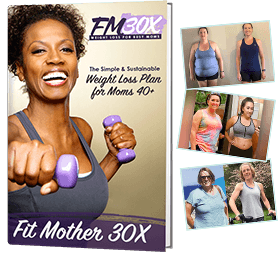
Learn More About FM30X

*Please know that weight loss results & health changes/improvements vary from individual to individual; you may not achieve similar results. Always consult with your doctor before making health decisions. This is not medical advice – simply very well-researched info on health tips for women over 50.

